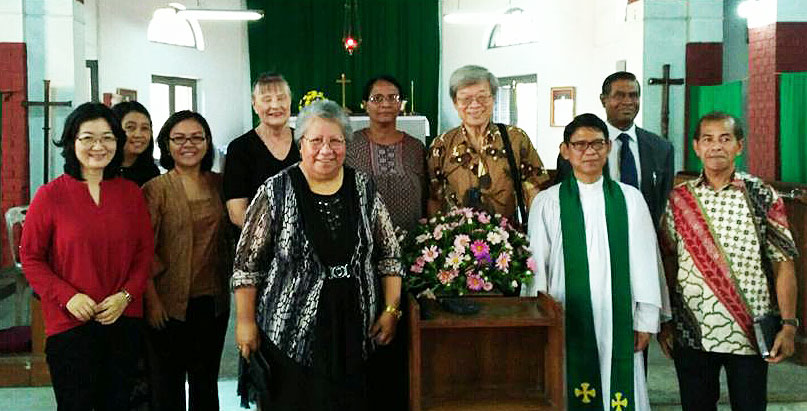CCA’s Worship and Liturgical Traditions Workshop develops liturgical resources for Asia Mission Conference
 Participants of the Worship and Liturgical Traditions in Asia Workshop in Yangon, Myanmar.
Participants of the Worship and Liturgical Traditions in Asia Workshop in Yangon, Myanmar.
A group of specialized Asian liturgists and musicians together with selected participants for a workshop, organised by the Christian Conference of Asia (CCA), reflected on developing ecumenical spirituality, and nurturing the contextual liturgical traditions in Asia.
Focused on the theme ‘Worship and Liturgical Traditions in Asia’, the workshop initiated the process of developing worship resources for the forthcoming Asia Mission Conference (AMC).
Held from 26-31 January 2017 in Yangon, Myanmar, the workshop was hosted by the Myanmar Council of Churches (MCC), and developed the theme song of the Asian Mission Conference, as well as worship resources, including hymns in accordance with the theme and four sub-themes of the AMC 2017.
The workshop helped the participants to draw experiences from various Asian church traditions to develop liturgical resources for the AMC 2017.
Program Coordinator of the CCA, Rev. Jung Eun Moon said, “During the workshop, the process of developing worship resources helped the participants to understand the rich Asian liturgical and musical traditions deeply rooted in Asian spirituality.”
“As the programs of the AMC 2017 will focus on emerging Asian issues and concerns especially, climate justice, refugee crisis, human trafficking, the struggle of the margalinized communities, gender discrimination and violence, economic injustices, religious intolerance, and other socio-political issues, the worship resources will incorporate these concerns as part of the liturgy and hymns for each day’s morning and evening spirituality sessions,” said, Rev. Dr. I-to Loh, veteran Asian specialist on Music and Liturgy, who will lead the worship team of the AMC 2017.










